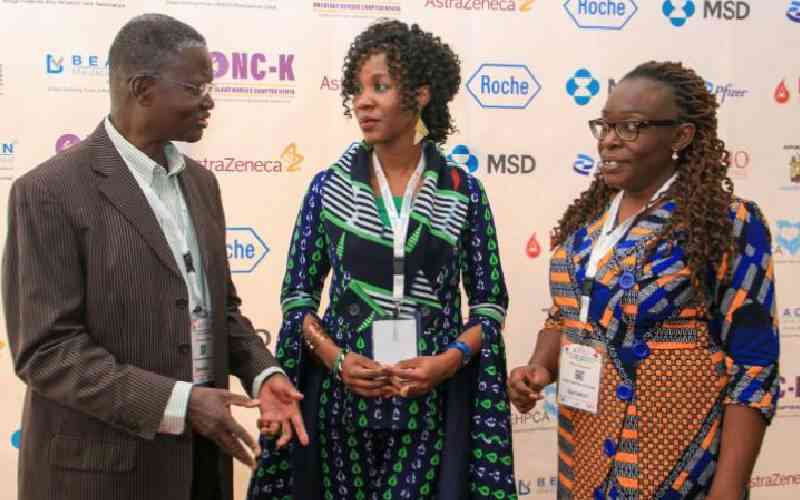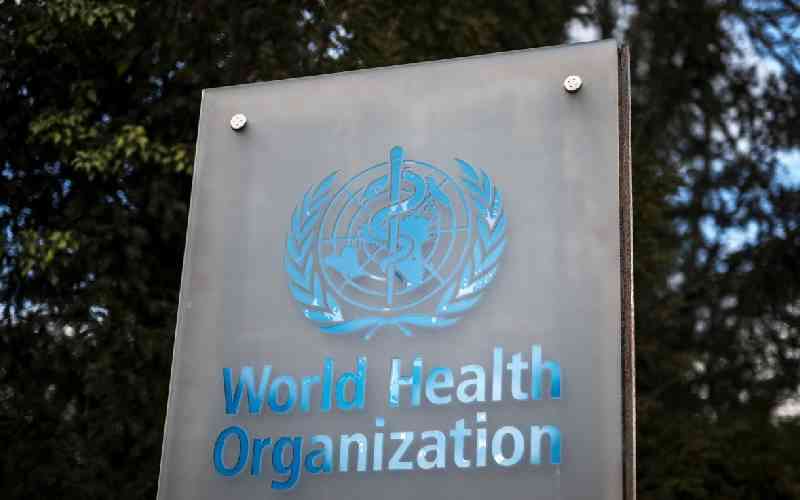
From left, Dr.Nicholas Abinya the founder of Kenya Society of Haematology & Ecology (KESHO), Dr Miriam Mutebi Chairperson of the Kenya Society of Haematology & Ecology and Dr. Mary Nyangasi , Head of National Cancer Program, MOH during the 17th Kenya International Cancer Conference that was held in Mombasa. [Robert Menza, Standard]
Majority of Kenyans are still shying away from cancer screening with 70 per cent of patients diagnosed in late stages.
According to the Ministry of Health, many patients are diagnosed at stage three or four of the disease, which is late and expensive to treat.
 The Standard Group Plc is a multi-media organization with investments in media
platforms spanning newspaper print
operations, television, radio broadcasting, digital and online services. The
Standard Group is recognized as a
leading multi-media house in Kenya with a key influence in matters of national
and international interest.
The Standard Group Plc is a multi-media organization with investments in media
platforms spanning newspaper print
operations, television, radio broadcasting, digital and online services. The
Standard Group is recognized as a
leading multi-media house in Kenya with a key influence in matters of national
and international interest.











